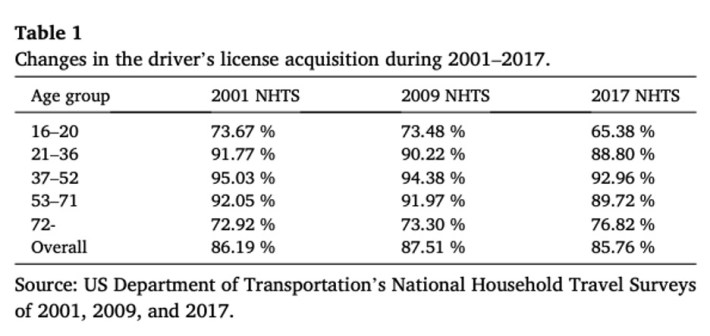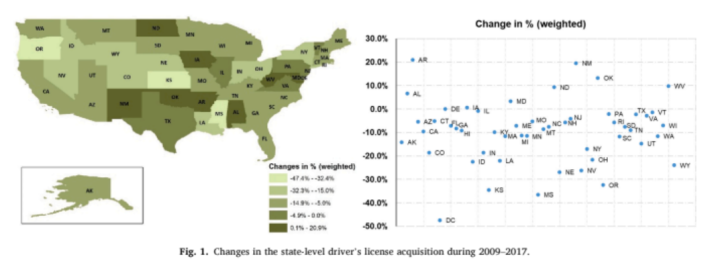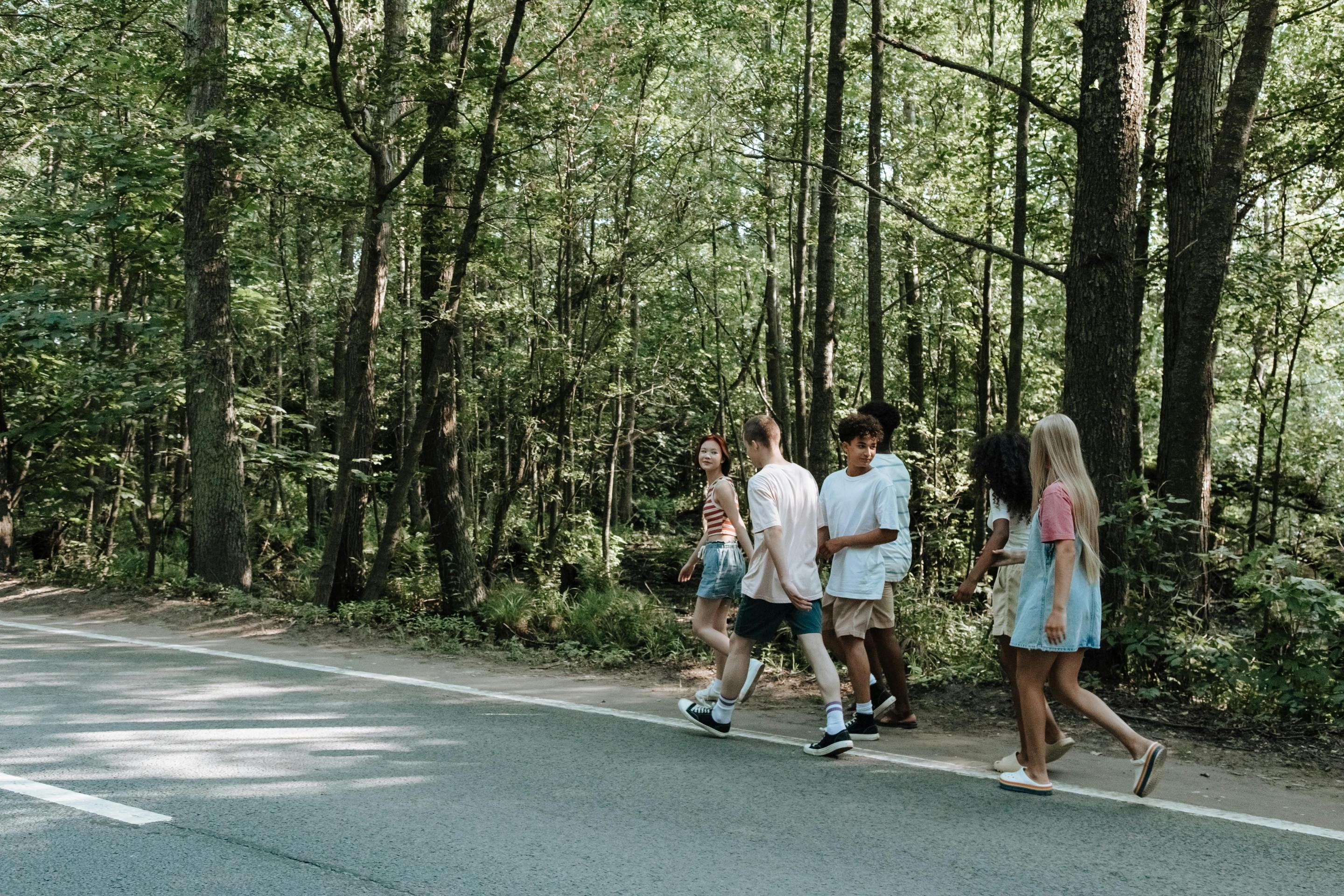Gen Z Americans are waiting far longer to get drivers licenses and taking fewer driving trips than the generations before them, a new study confirms — but if their communities continue to be designed almost exclusively around the automobile, that may not have much of an impact on our transportation future.
In the latest in a growing mountain of studies that suggest young Americans are souring on driving, University of Houston researchers found that only 65 percent of 16 to 20 year olds had gotten their license in 2017, the most-recent year for which data is available. That's down 8 percent from the share of young adults who headed to the DMV in 2009, when many millennials were first getting on the road.

Like other experts, the researcher behind the study says the reason why comes down to a complicated mix of who Gen Z Americans are, where they live, how much money they have, and — yes — their changing attitudes towards living life behind a windshield.
"In my study, after accounting for the built environment and socio-economic variables, I still observe a difference between the two generations," said Kailai Wang, assistant professor and the study's lead author. "This difference can be partially explained by a generational shift in attitudes towards automobility."
Before anyone starts celebrating the victory of the coming urbanist revolution, though, Wang urges caution.
For one, those "built environment and socio-economic variables" matter a lot. Wang points out that Gen Z is "the most racially and ethnically diverse generation in U.S. history" — and that people of color and immigrants are less likely to have any form of photo ID than their white, non-immigrant counterparts. Other researchers believe that's because those groups are less likely to be able to offer documentation of a permanent address, less likely to be able to afford steep licensing fees or vehicle ownership, and may struggle to navigate the bureaucracy of getting that all-important card in an age of increasingly restrictive voter ID laws, among a raft of other under-studied reasons.
BIPOC teens are also more likely to live in dense, urbanized areas where driving is less necessary, or at least in semi-urbanized suburbs where nominal transit exists, even if it's not great. Wang also found that "population density has a statistically significant and negative association with Gen Z's willingness to acquire a driver's license...since urban elements increase teens' access to more opportunities that do not depend on driving."

Even Zoomers who could get licenses, though, might just be staying home. Like many other academics, Wang points out that Gen Z is "the first generation growing up in a truly digital environment," especially during the COVID-19 era when many logged into remote classrooms and relied on social media in lieu of IRL social interaction.
And even before an airborne virus pushed the world onto the internet, younger U.S. residents were still going out less, with teens in 2017 reporting double-digit decreases in overall trips for everything but school and work, compared with teens polled in 2009. Meanwhile, the percentage of 16 to 20 year olds who reported ordering something online in the last week more than doubled over the same period, and it nearly tripled for kids who didn't hold licenses at all.
Even as the average American teenager's median weekly driving trips plummeted, though, their median weekly driving distance didn't. Between 2009 and 2017, the former fell an astonishing 16 percent, but the latter rose nearly 12 percent. Or, put another way: while more young people are choosing not to get their licenses, increasingly car-dependent landscapes may ensure that the ones that do make up for it.
Still, Wang suspects that Gen Z culture is shifting away from private vehicle ownership — even if he's not so sure it will shift towards active transportation and transit rather than Uber, Lyft, and their ilk. And that means policymakers who want young adults to pick sustainable modes need to be proactive about making them viable now — before the next generation ventures out on the roads.
"To keep Gen Z less car-dependent, it is crucial to urbanize our suburbs by improving access to parks, museums, libraries, cinemas, and public transit services," added Wang. "If young people have more activities within a 10 or 15-minute walking distance from their homes, they will walk and bike more frequently. We simply need more points of interest to attract them."






